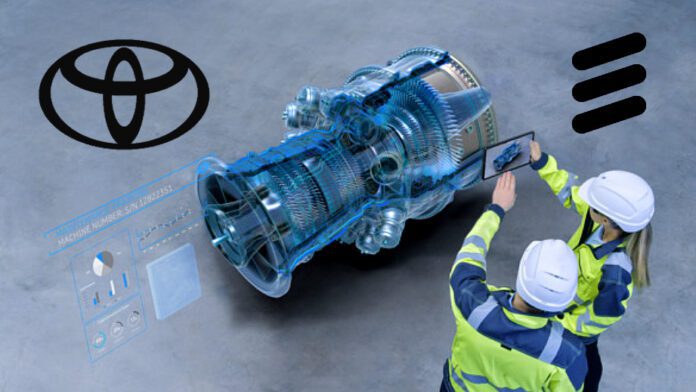Toyota Material Handling, the US-based forklift truck manufacturer, is running its business critical operations at its 200,000 square-foot (19,000 square-metre) factory in Columbus, Indiana, “exclusively” over an Ericsson-made private 5G network in CBRS spectrum, it has said. The private 5G installation was completed last November by US system integrator STEP. It has replaced its entire Wi-Fi network with private 5G, a statement said.
Toyota Material Handling, a division of Japanese machine maker Toyota Industries (a subsidiary of vehicle maker Toyota), produces and distributes forklifts, tractors, and various aerial work platforms for the US industrial market. The firm has claimed “increased productivity, faster deliveries, and boosted morale” since the private 5G network went live, across its indoor and outdoor sites. The local 5G setup was designed by Ericsson and STEP together, said the statement.
They worked together, as well, with “three major US carriers” to patch public 5G connectivity further into certain vicinities to cover the whole site in Indiana, they said – on the “design, deployment, and rebroadcast agreements” to enable a “coverage extension” across the venue. As such, Toyota Material Handling is using a combination of private and public 5G coverage at the site, to handle less/more critical comms, respectively.
Ericsson said the private 5G network provides (“optimises”) connectivity for “worker comms, IoT-based predictive maintenance, fleet management, and telematics”, as well as “boosted network reliability and security”. The public 5G “extension”, delivered with US operators, delivers a further boost, it said. A statement said: “Toyota Material Handling plans to continue its Industry 4.0 transformation with private 5G… across other operational facilities.”
Daniel Schumacher, vice president of IT at Toyota Material Handling in North America, said: “STEP came to our campus voluntarily, and spent several days to understand our operations before recommending solutions. Ericsson was able to accomplish in two-to-three months what would have taken us nine-to-12 months working directly with telecom providers… This is one example of Toyota’s ongoing efforts to advance and modernize the infrastructure supporting our operations.”
Ed Walton, chief executive at STEP, said: “Industry 4.0 strategies require scalability and flexibility to address diverse needs. With the help of STEP, the deployment of Ericsson [equipment] enables Toyota Material Handling to increase operational efficiencies and secure data on site, while addressing diverse user needs and driving real business outcomes.”
Manish Tiwari, head of private networks in Ericsson’s enterprise solutions division, said: “The early benefits already being highlighted by Toyota Material Handling show the immediate impact private 5G can have on operations, employees, and customers. We understand the importance of a strong, resilient, and secure network for businesses investing in Industry 4.0 best practices. Toyota Material Handling is at the forefront of Industry 4.0 innovation.”

